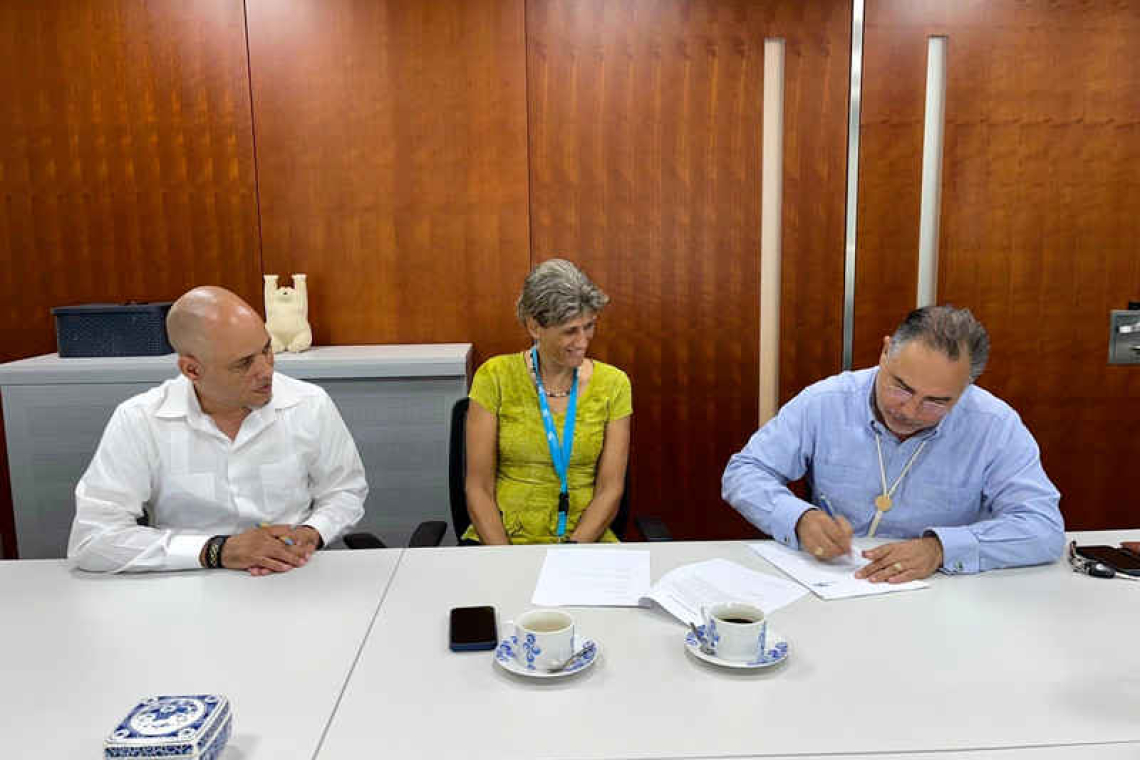Joint Court of Justice President Mauritsz de Kort (right) signing the agreement last week.
WILLEMSTAD--The Joint Court of Justice and the Prosecutor’s Offices of St. Maarten,
Aruba, Curaçao and Bonaire, St. Eustatius and Saba signed an agreement last week to
align working methods for handling criminal cases and the capacity of each courthouse to
conduct hearings.
“This signing marks a historic moment in which the Court makes working agreements
with all public prosecutors [in the Dutch Caribbean – Ed.] for the first time,” the Joint
Court said in a press release on Wednesday, noting that the last agreement did not
include Aruba.
According to the press release, the working agreement is further elaborated in the
Criminal Procedure Regulation, which has also been signed by the Joint Court and the
four Prosecutor’s Offices of the Dutch Caribbean.
The agreement and the criminal procedure regulation will go into effect on September 1.
The Joint Court said a new agreement on working methods will be signed every year.
“The signing of this covenant marks another important milestone, not only because the
previous agreement dates from a few years ago, but also because this agreement is
accompanied, for the first time, by a criminal procedure regulation,” it was stated in the
press release. “The creation of this criminal procedure regulation complements the
existing procedural regulations, those of civil cases and administrative law.”
The Joint Court says the criminal procedure regulation “aims to bring uniformity to the
way in which criminal cases are handled by the court and the Prosecutor’s Offices, both in
first instance and on appeal.”
“Where necessary, the regulation offers scope for customisation to do justice to the
specific local situation,” it was stated in the press release.
The criminal procedure regulation also focuses on improving various processes, such as
planning and appointments, compiling case files and administrative processing after a
verdict.
“An important objective of the regulation is to contribute to a reduction of the
processing times in criminal cases,” the Joint Court said.







